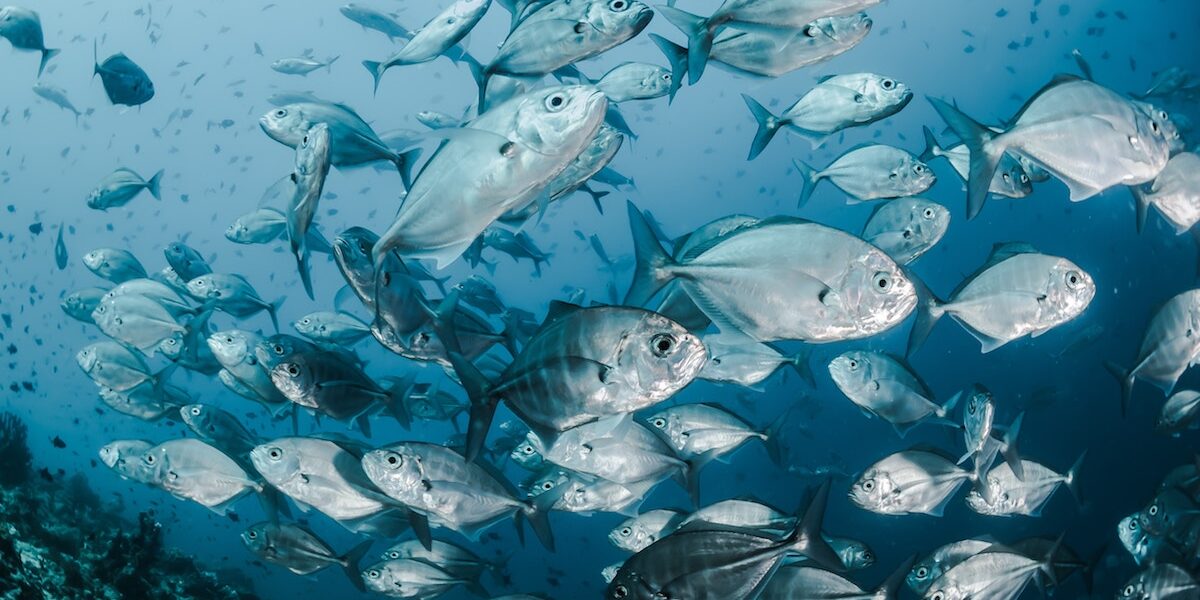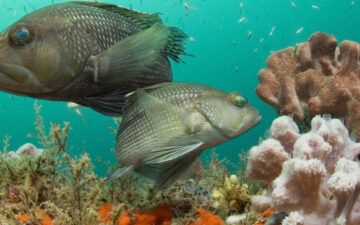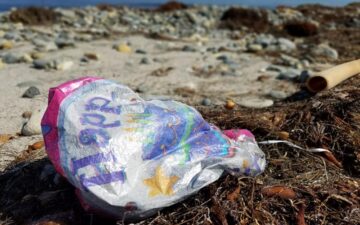By Mark J. Spalding — President, The Ocean Foundation
Question: Why are we talking about wild-caught fish? There are so many more ocean industry sectors, and so many issues that center on the human relationship with the oceans. Should we be concerned that so much time is spent on how to help this declining industry survive, rather than the many other ocean stories we have to tell?
Answer: Because it is well established that other than climate change, there is no bigger threat to the ocean than overfishing and the activities that accompany it.
Friday was the last day of the World Oceans Summit hosted by The Economist here in Singapore. One certainly expects a pro-business stand, or a capitalist markets solution orientation, from The Economist. While that frame can sometimes seem a little narrow, there has thankfully been a robust focus on fisheries. Wild-caught fish capture peaked at 96 million tons in 1988. Since then has only remained semi-stable in volume by fishing down the food chain (successively targeting less desirable fish) and too often, by following the motto “fish ‘til its gone, then move on.”
“We are hunting down large fish the same way we did our terrestrial animals,” said Geoff Carr, Science Editor for The Economist. So right now, fish populations are in deep trouble in three ways:
1) We are taking too many out for them to maintain population, much less regrow them;
2) Many of the ones we are taking out represent either the biggest (and therefore most fertile) or the smallest (and the key to our future); and
3) The ways in which we capture, process, and transport fish are destructive from the ocean floor to the high tide line. It is no surprise that the ocean’s life systems are thrown out of balance as a result.
4. We still manage fish populations and think of fish as crops that grow in the oceans that we simply harvest. In fact, we are learning more and more how fish are integral parts of ocean ecosystems and removing them means we’re removing part of the ecosystem. This is causing significant changes to the way marine ecosystems function.
So, we need to talk about fisheries if we are going to talk about saving the ocean. And where better to talk about it than in a place where the risk and threats are being recognized both as a conservation issue and a business issue . . . an Economist conference.
Sadly, it is well established that industrial/commercial harvesting of wild fish may not be sustainable environmentally:
– We cannot harvest wild animals at a scale for global human consumption (on land or from the sea)
– We cannot eat the apex predators and expect the systems to stay in balance
– A recent report says our unassessed and least known fisheries are the most damaged and gravely depleted, which, given the news from our well-known fisheries…
– Collapse of fisheries is on the rise, and the once collapsed, fisheries do not necessarily recover
– Most small-scale sustainable fisheries are near areas of population growth, so it is only a matter of time until they are at risk of overexploitation
– Demand for fish protein is growing faster than wild seafood populations can sustain it
– Climate change is effecting weather patterns and fish migration
– Ocean acidification endangers the primary food sources for fish, shellfish production, and vulnerable habitat such as the coral reef systems that serve as home for at least part of the lives of nearly half of the world’s fish.
– Effective governance of wild fisheries depends on some strong non-industry voices, and the industry, has, understandably played a dominant role in fishery management decisions.
Nor is the industry very healthy or sustainable:
– Our wild catch is already over-exploited and the industry over-capitalized (too many boats chasing fewer fish)
– Large-scale commercial fisheries are not financially viable without government subsidies for fuel, shipbuilding, and other industry components;
–These subsidies, which have been recently under serious scrutiny at the World Trade Organization, create an economic incentive to destroy our ocean’s natural capital; i.e. they currently work against sustainability;
– Fuel and other costs are rising, along with sea level, which affects the infrastructure for fishing fleets;
– The wild-caught fish industry faces a radically more competitive arena, beyond regulation, where the markets require higher standards, quality, and tracking of product
– Competition from aquaculture is significant and growing. Aquaculture already captures more than half of the global seafood market, and nearshore aquaculture is set to double, even as more sustainable onshore technologies are being developed that address the challenges of disease, water pollution and coastal habitat destruction.
– And, it must face these changes and challenges with rusting infrastructure, too many steps in its supply chain (with risk of waste at each stage), and all with a perishable product that needs refrigeration, speedy transport, and clean processing.
If you are a bank looking to reduce risk in your loan portfolio, or an insurance company looking for lower risk businesses to insure, you are going to increasingly be shying away from the cost, climate, and accident risks inherent in wild fisheries and enticed by aquaculture/mariculture as a better alternative.
Food Security Instead
During the meeting, there were a few well-timed moments to remind the sponsors and their chosen speakers that overfishing is also about poverty and subsistence. Can we restore the ocean’s life systems, re-establish historic levels of productivity, and talk about its role in food security—especially, how many of our 7 billion people can depend on wild seafood as a significant protein source, and what are our alternatives for feeding the rest, especially as the population grows?
We need to be constantly aware that the small-scale fisher must still be able to feed his family—he has fewer protein alternatives than suburban Americans, for example. Fishing is survival for many people around the world. Thus, we need to think about rural re-development solutions. The good news for us in the conservation community is that if we promote biodiversity in the ocean, we increase productivity and thus some level of food security. And, if we ensure we do not extract resources in a way that simplifies the ecosystem (leaving too few and too genetically similar species), we can also avoid further collapse amid changing conditions.
So we need to:
– Expand the number of countries who are working towards sustainable management of commercial fisheries in their waters
– Set the Total Allowable Catch correctly to allow the fish to reproduce and recover (only a few well developed states have done this pre-requisite yet)
– Take the market distorting subsidies out of the system (under way at the WTO)
– Have the government do its job and go after illegal, unreported and unregulated (IUU) fishing
– Create incentives to address the overcapacity problem
– Create marine protected areas (MPAs) to set aside places for fish and other species to reproduce and recover, without risk of capture or damage from fishing gear.
The Challenge
All of these require political will, multi-lateral commitment, and a recognition that some present limits may be needed for future success. To date, there remain members of the fishing industry who use its significant political power to oppose catch limits, minimize protections in MPAs, and, maintain subsidies. At the same time, there is also growing recognition of the needs of small fishing communities with few economic alternatives, the emerging options to reduce pressure in the ocean by expanding fish production on land, and the clear decline in many fisheries.
At The Ocean Foundation, our community of donors, advisors, grantees, project leaders, and fellows are working towards solutions. Solutions that draw on an array of strategies, carefully considered potential consequences, and emerging technologies to frame a future in which all of the world may not be fed from the sea, but the world will still be able to depend on the sea as part of global food security. We hope you will join us.







